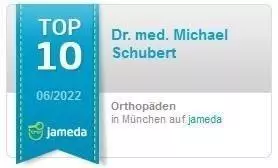Scientific studies show that women not only suffer from back problems more often, but also have specific symptoms and causes.
What factors play a role? In this article, you'll learn about the physiological and hormonal factors involved and how conditions like herniated discs manifest themselves in women.
We also examine innovative, minimally invasive treatment methods such as endoscopic spine surgery, which are specifically tailored to the needs of women.
Anatomical differences between women and men
Anatomy plays a central role in the development of back pain. Women have a narrower spine and less muscle mass in the back compared to men. Women's intervertebral discs are also smaller and thinner on average, making them more susceptible to degeneration and injury. These anatomical differences influence how women experience pain and respond to back problems. A study published in Ärzteblatt showed that women aged 25 to 64 report back pain significantly more often than men, partly due to these anatomical differences.
Hormones and their effects on back pain
Hormonal changes, particularly during the menstrual cycle and menopause, have a significant impact on women's pain perception. Many women experience back pain during their period, which can be caused in part by hormonal fluctuations. During menopause, declining estrogen leads to changes in bone and connective tissue, resulting in an increased susceptibility to back problems. Studies show that women during this stage of life have a higher risk of herniated discs, which has highlighted the need for specialized treatment.
Frequency of herniated discs in women
Women are particularly susceptible to herniated discs due to a combination of genetic, hormonal, and anatomical factors. Research shows that lifestyle factors, such as occupational stress, can also lead to an increased risk in women. Jobs that require frequent lifting and carrying or involve prolonged sitting increase the risk.
Psychosocial factors and their role
The perception of pain is strongly influenced by psychosocial factors. Women tend to react more emotionally to pain and are more likely to suffer from anxiety and depressive disorders, which can exacerbate pain. Studies show that women with back pain often have a more extensive pain history, making treatment more complex. Societal expectations and roles that often position women in caregiving and nursing can also lead to greater stress.
Differences in the symptoms of back problems
Back problems can manifest differently in women than in men. While men often complain of acute lower back pain, women often report diffuse, long-lasting pain that can radiate to other parts of the body. In many cases, accompanying symptoms such as tension in the neck or shoulders are also observed. These differences are important for targeted diagnosis and treatment.
Risk groups among women
Some women are particularly susceptible to back problems, especially those who work in physically demanding jobs, such as nursing, teaching, and hospitality. Scientific studies have also shown that women who have suffered previous back injuries or are severely overweight are at increased risk. A holistic approach to prevention and treatment is crucial here.
Diagnosis and treatment – A gender-specific approach
The diagnosis and treatment of back pain should be tailored to the specific needs of women. This means that physicians should be aware that hormonal and psychosocial factors play a role. Innovative, minimally invasive treatment methods such as endoscopic spine surgery are increasingly being used to make precise diagnoses and offer individualized treatment options.
Innovative treatment methods for apex spine
The Apex-Spine Spine Center in Munich offers a variety of minimally invasive treatment options for women suffering from back problems. These include, in particular, endoscopic spine surgery and other modern procedures based on international standards. These methods enable targeted and gentle therapy that can effectively relieve pain.
Experience and expertise from the experts at the Apex-Spine Spine Clinic
Apex-Spine's specialists have international experience and not only the qualifications required to provide precise diagnostics and treatment, but also a deep understanding of the specific needs of women with back problems. Close collaboration among the physicians in an interdisciplinary team ensures tailored therapy based on the latest scientific findings.
If you suffer from back pain or would like to learn more about the treatment options available at Apex-Spine, please don't hesitate to contact us. Our specialists are available for a personalized consultation to work with you to find the best course of action for your condition. Your health is important to us – let's work together to find your back pain relief!

